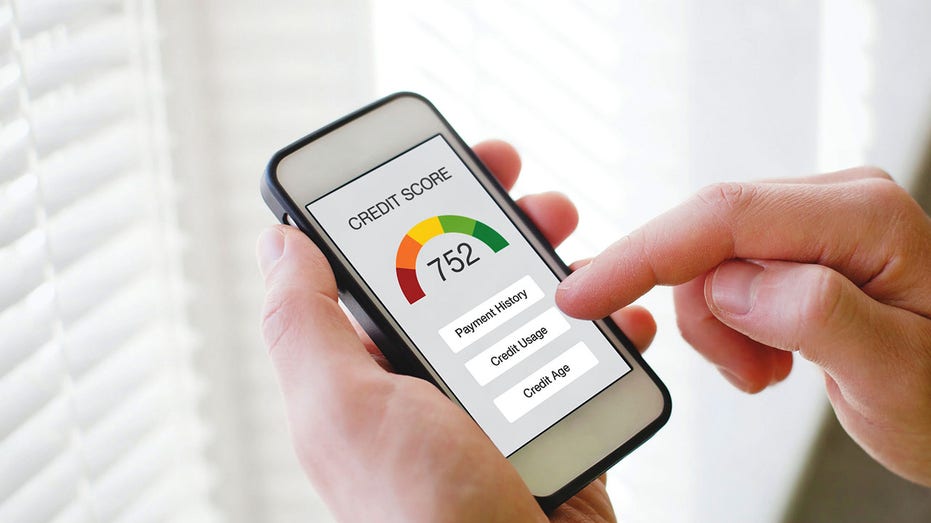Asking your issuer for a credit card limit increase is relatively easy to request, and most experts say if you can manage your temptation to overspend, and you have a solid pay-back history, it may be something to consider.
“I think asking for a credit line increase is a good idea,” says Ted Rossman, senior industry analyst at CreditCards.com. “It can help your credit score because it can lower your credit utilization ratio which is the credit you’re using divided by credit available to you.”
He says this is a key component of your credit score. Typically, says Rossman, it’s best to have more available credit and to use less of it.”
One exception would be if you end up overspending because of the higher limit. But as long as having more credit won’t cause you to overspend, it’s usually a good idea to ask for a higher limit,” Rossman tells FOX Business.
INFLATION STRESS FOR SMALL BUSINESSES HITS RECORD HIGH
According to Rossman, about three out of every four U.S. adults have a credit card, making credit cards one of the most popular forms of credit.
“Your credit card usage is an important factor in your credit score, which impacts your ability to qualify for other financial products,” he says. “You can find your credit limit on your monthly credit card statements and also when you log into your credit card issuer’s website or mobile app.”
What exactly is a credit card limit increase?
Increasing your credit spending limit allows you more spending power.
“When an issuer offers a credit limit increase, it means that they agree to increase the total amount you have available to spend on a credit card,” says Melissa Lambarena, a credit card expert at NerdWallet. “They typically grant an increase if you’re eligible based on factors like income, payment history and credit utilization.”
What are reasons to ask for a credit limit increase?
Some reasons for requesting a credit limit increase may include wanting to improve credit scores or covering your bases for the unexpected, she says.
“A credit limit increase can offer more credit to work with if you have a big purchase coming up, but it can also serve as a Plan C to your Plan B emergency fund if it falls short, or you want the security of having more options as a backup,” Lambarena tells FOX Business.
THE NEXT MARKET TREND COULD BE ‘BIGGER’ THAN SVB, EXPERT SAYS
Is asking for a credit line increase always done in hard times?
When you’re requesting a credit limit, having a plan in place is important. For example, Lambarena explains, you may need to request a credit limit increase during bad times but may want to secure a higher credit limit in good times too.
“For example, if you’ve gotten a raise, improved your credit and maintained a history of on-time payments, it may be a good time to ask for one. Your prospects for a credit limit increase get dimmer in times when you have less-than-ideal credit or financial struggles,” she says.
How do you request a credit limit increase with your issuer?
Depending on the issuer, you likely have different options for requesting a credit limit increase. According to Lambarena, some credit cards allow you to log into your account online or in the card’s app to make a request.
“Usually, you have to update your income information,” she says. In other cases, you might have to call your credit card issuer to ask if you’re eligible. You can find the customer service phone number on the back of your credit card. In some cases, select credit card issuers, says Lambarena, don’t even require you to ask for one, they may increase it automatically if you’ve maintained a good payment history.
What are two advantages of asking for a credit limit increase?
There are pros to requesting a credit card limit increase. For example, a credit limit increase can lower your credit utilization ratio, which is the amount of available credit that you’re using, says Lambarena.
“It’s a key factor that impacts credit scores, so a lower credit utilization ratio can improve them,” she adds.
A credit utilization ratio is the percentage of how much you owe on all of your revolving accounts, like credit cards, compared to the total amount of credit available for use, she says. It’s a key factor that impacts credit scores. A higher credit limit can lower your credit utilization and help improve your credit scores.
ECONOMICS EXPERT ISSUES DIRE WARNING ON ‘SERIOUS THREAT’ FACED BY US DOLLAR: IT’S ‘INEVITABLE’
Keep in mind that your credit card issuer offers a credit limit of a certain amount, but she points out that it doesn’t expect you to use it all.
“Doing so can have a negative impact on credit scores. It’s recommended to not let your balance exceed 30% of your available credit,” Lambarena tells FOX Business.
In addition, she says having a higher credit limit may also help you preserve credit if another issuer slashes a credit limit on a different credit card.
“It’s a way to diversify your credit limits for the unexpected, continues Lambarena. “Issuers have been known to take these actions in a shaky economy.”
What are the drawbacks?
Depending on the credit card issuer, a hard inquiry may apply when you request a credit limit increase.
“It’s a credit check that typically causes your credit scores to temporarily drop, so you’ll want to consider whether you’re applying for other types of credit before putting in your request,” advises Lambarena.

And, another caveat to requesting more spending power is the opportunity to rack up credit card bills.
“If you have the tendency to overspend, a higher credit limit can mean having to dig your way out of a deeper hole if you land yourself in debt,” she says.
If you have a few cards, how does a consumer pick the right one to ask for a credit line increase?
When contemplating which credit card you want to request a credit limit increase on, Lambarena recommends you consider asking for a credit limit increase on a frequently used card that has been consistently paid on time and doesn’t have a balance exceeding 30% of its available credit.
“If you have several cards that meet this criteria, you can also let your goals factor into the decision,” she explains. “For instance, if you tend to carry an ongoing balance and you’re looking to save money, it might be worth asking for a credit limit increase on a card that has a lower interest rate.”
Keep in mind also that over time, if it makes sense, you can space out your requests for a higher credit limit on different cards by at least six months to potentially prevent multiple hard inquiries from negatively impacting your credit scores at the same time, she says.
Can this decision impact your credit score?
Depending on the issuer, Lambarena says a credit limit increase may result in a hard inquiry, or credit check, that temporarily causes credit scores to drop.
“That’s why it’s important to consider whether you’ll be submitting other applications for credit in the near future before requesting a credit limit increase,” adds Lambarena. “This way, you’ll have all of the information you need before taking any action.”
Read the full article here










